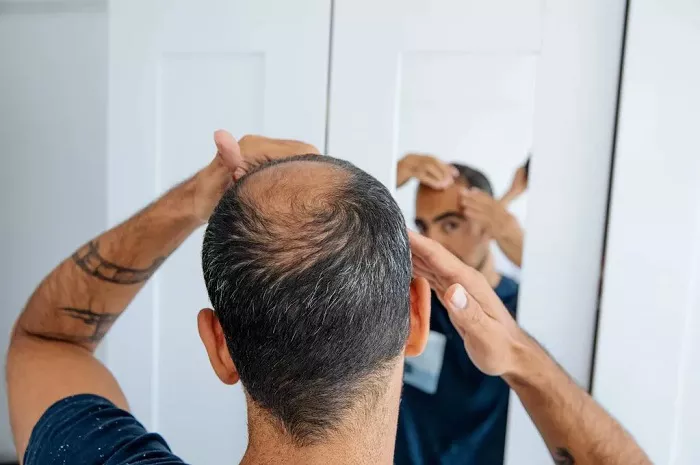Hair loss, reduced libido, and low testosterone could be more than just aging-related issues—they might be signs your body is lacking a crucial nutrient: zinc. According to Dr. Eric Berg DC, a well-known health expert with over 13.5 million YouTube followers, these symptoms may signal a zinc deficiency that should not be ignored.
Zinc is an essential mineral involved in numerous vital bodily functions, including immune response, cell growth, and the production of enzymes. It also plays a central role in hair health, skin repair, wound healing, and even taste and smell perception.
In a recent YouTube Short titled “Zinc Deficiency Warning Signs,” Dr. Berg cautioned viewers:
“Your body is begging for zinc if you’re experiencing hair loss, low testosterone, or low libido. If you have a chronic infection, an ulcer, or a wound that won’t heal, suspect a zinc deficiency.”
He added that changes in taste, such as food tasting unusually bland, could also point to a zinc imbalance:
“Zinc controls taste and smell—so when food doesn’t taste right, it might be time to check your zinc intake.”
Signs of Zinc Deficiency
According to Healthline, symptoms that may indicate a zinc deficiency include:
Thinning hair or hair loss
Reduced immunity or frequent infections
Loss or alteration of taste and smell
Dry or flaky skin
Fertility issues or hormonal imbalance
Delayed wound healing
Digestive issues like diarrhoea
However, experts caution that zinc deficiency can be difficult to detect through standard lab tests. The body tightly regulates zinc levels, which means a person can still be deficient even if test results fall within the normal range.
Zinc’s Role in the Body
The NHS highlights zinc’s importance in:
Creating new cells and enzymes
Metabolising carbohydrates, proteins, and fats
Supporting the immune system
Facilitating proper wound healing
Zinc may also help reduce inflammation and support skin clarity, making it a useful mineral for those with acne or other skin conditions—another valuable hair health tip for overall grooming and self-care.
Daily Zinc Recommendations
For adults aged 19 to 64, the NHS recommends:
9.5 mg per day for men
7 mg per day for women
A well-balanced diet typically provides sufficient zinc, but deficiencies can occur—especially in people with restrictive diets, digestive disorders, or increased nutritional needs.
Zinc-Rich Foods to Include in Your Diet
To maintain optimal hair health and overall wellness, include zinc-rich foods such as:
Red meat and poultry
Shellfish like oysters and crab
Dairy products (e.g., cheese)
Wholegrain cereals and wheatgerm-enriched breads
Legumes and nuts for plant-based alternatives
For those who struggle to get enough zinc through food, dietary supplements may be recommended—but always consult with a healthcare provider before starting supplementation.
Don’t Ignore Subtle Symptoms
Hair loss, dull taste, or wounds that won’t heal might seem minor, but they could be telling signs of something deeper. Zinc plays a foundational role in your body’s ability to function and protect itself—so maintaining adequate levels is key.
If you’re experiencing unexplained hair thinning, lowered immunity, or a loss of taste and smell, consider speaking to a healthcare professional about your zinc levels. Early action, including dietary adjustments, may prevent long-term deficiencies and promote better hair health and vitality.
Related Topics:
- Does Creatine Cause Hair Loss? Experts Say No
- Shoppers Say This $20 Shampoo Restored Hair in Balding Areas
- MIIROKO Celebrates Self-Care Day With 10% Off Eco-Friendly Hair Colour Kits


